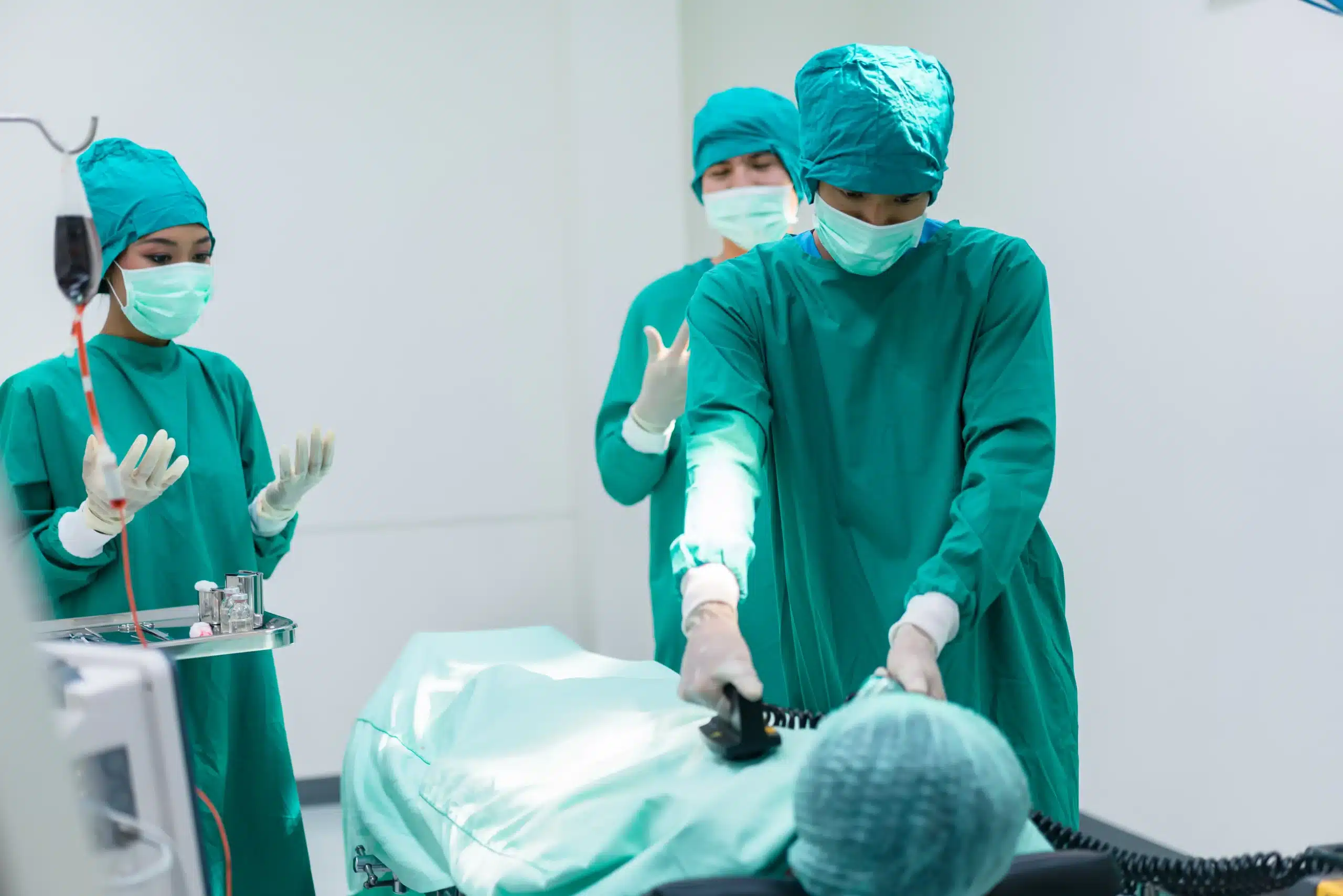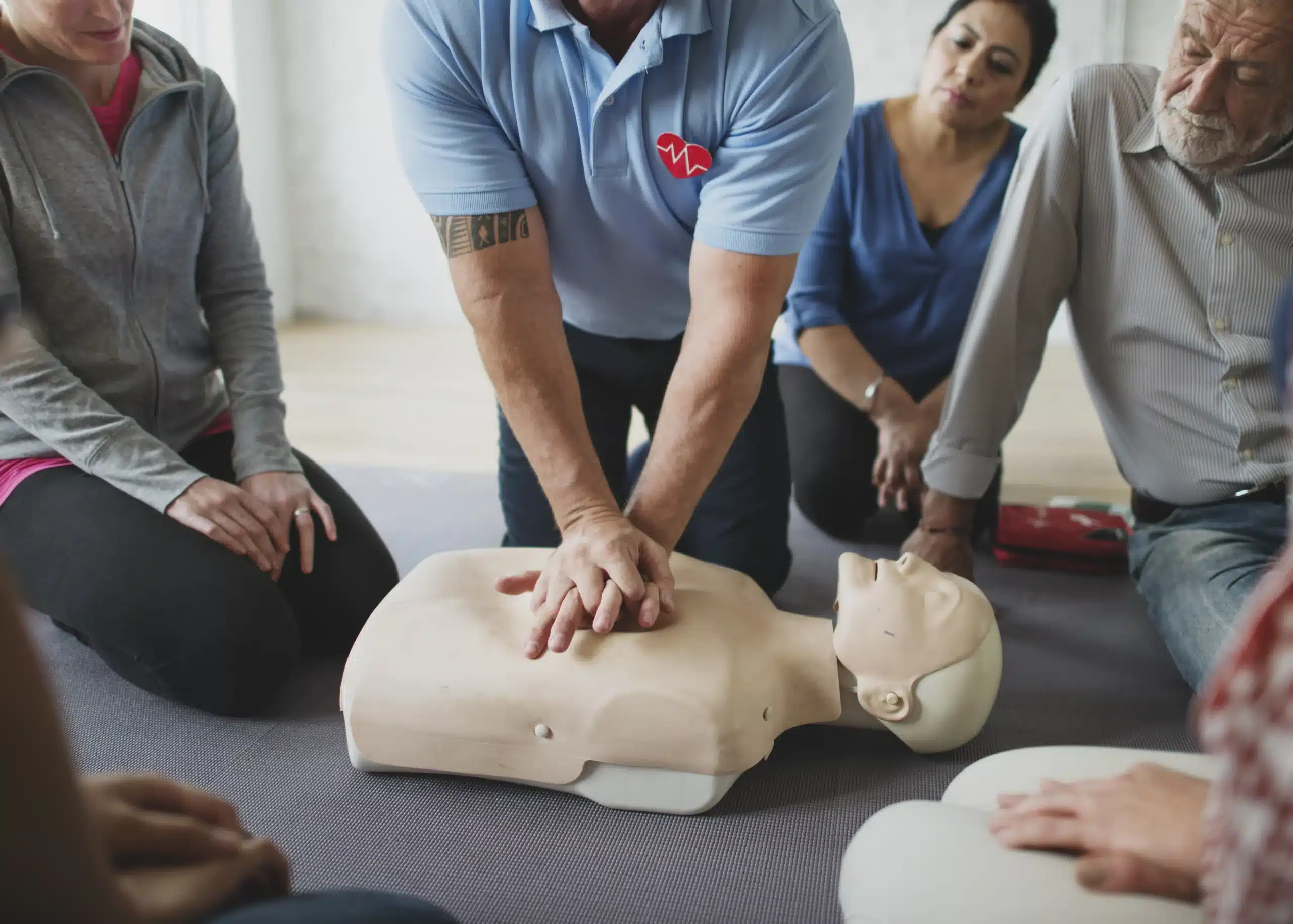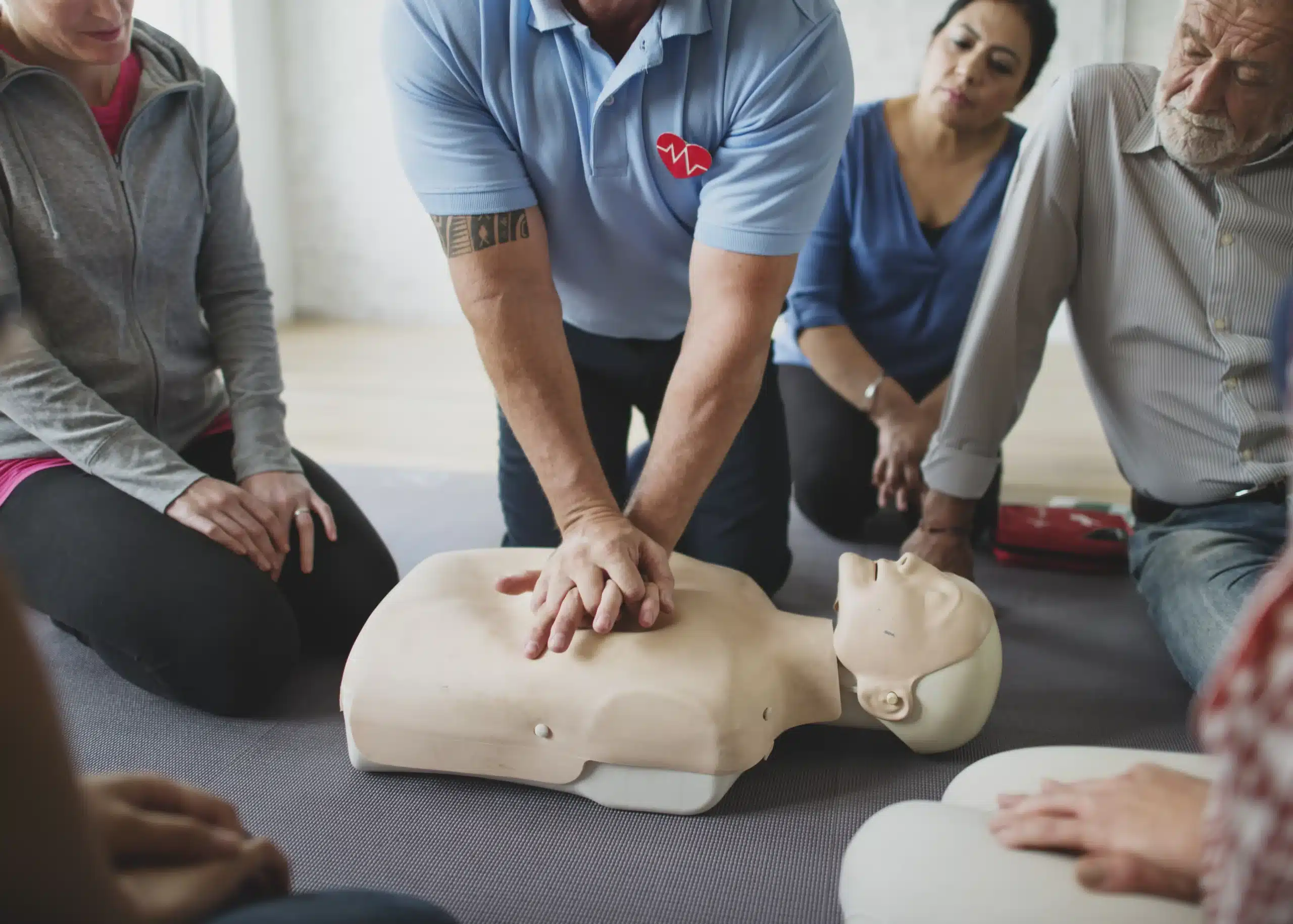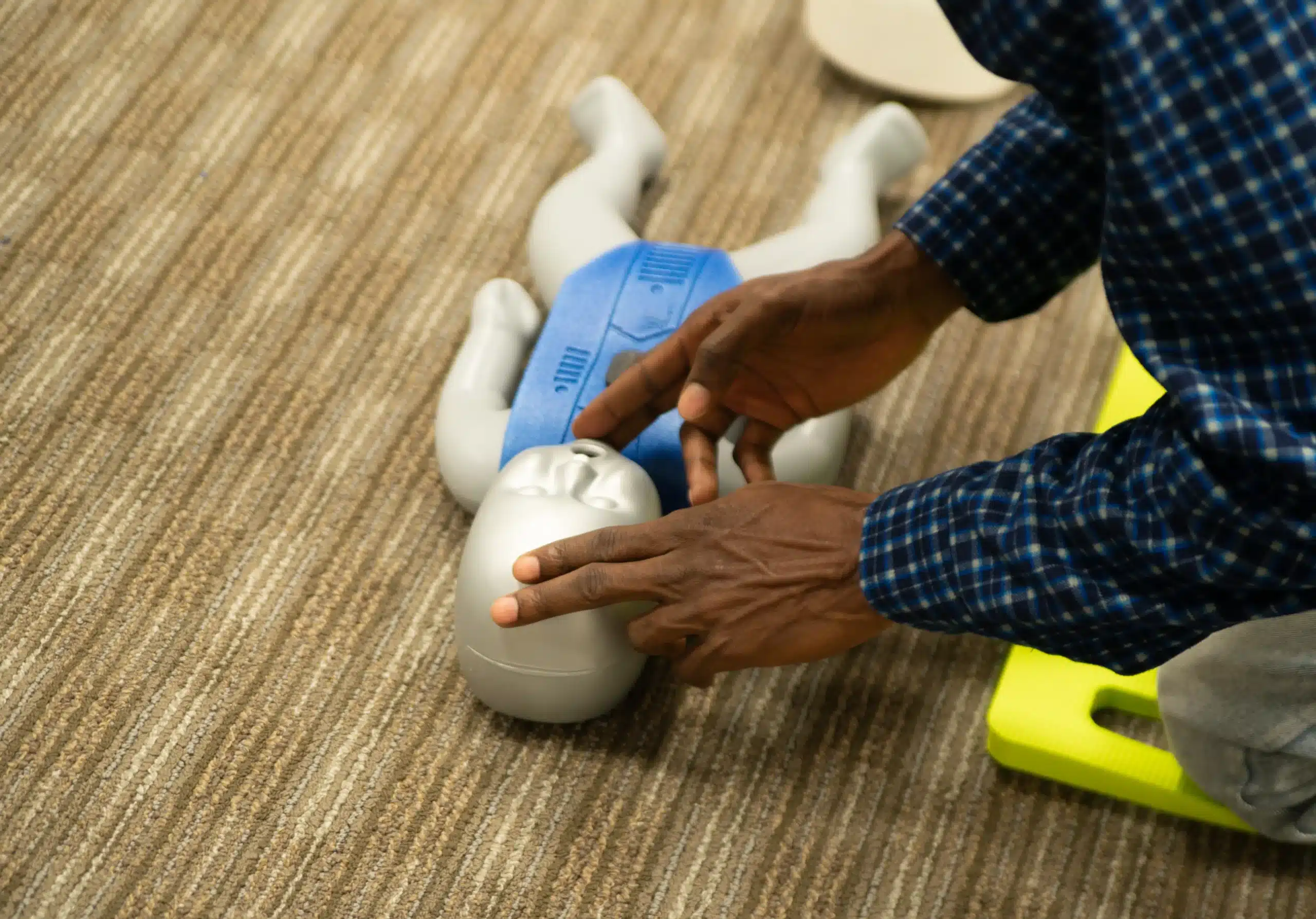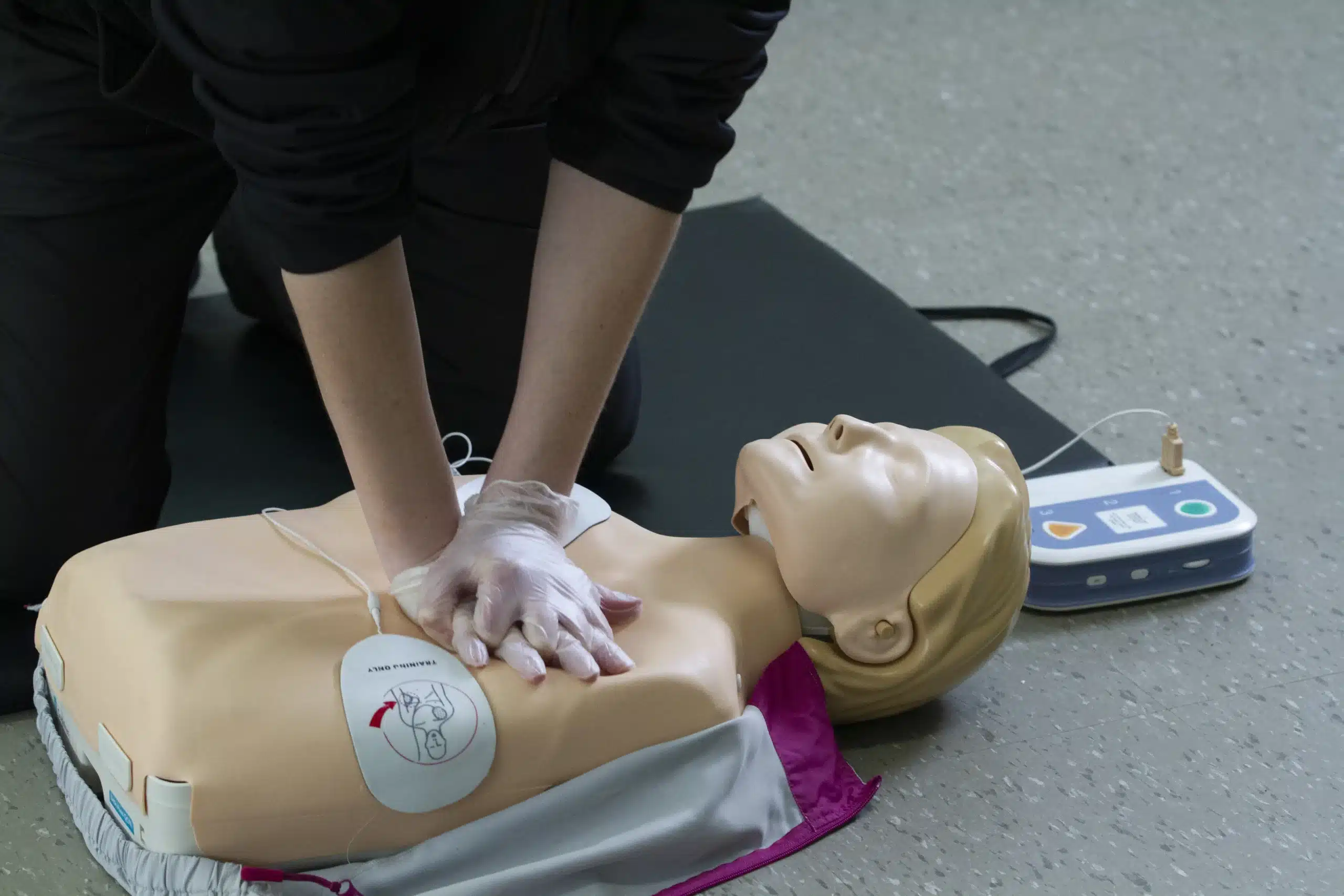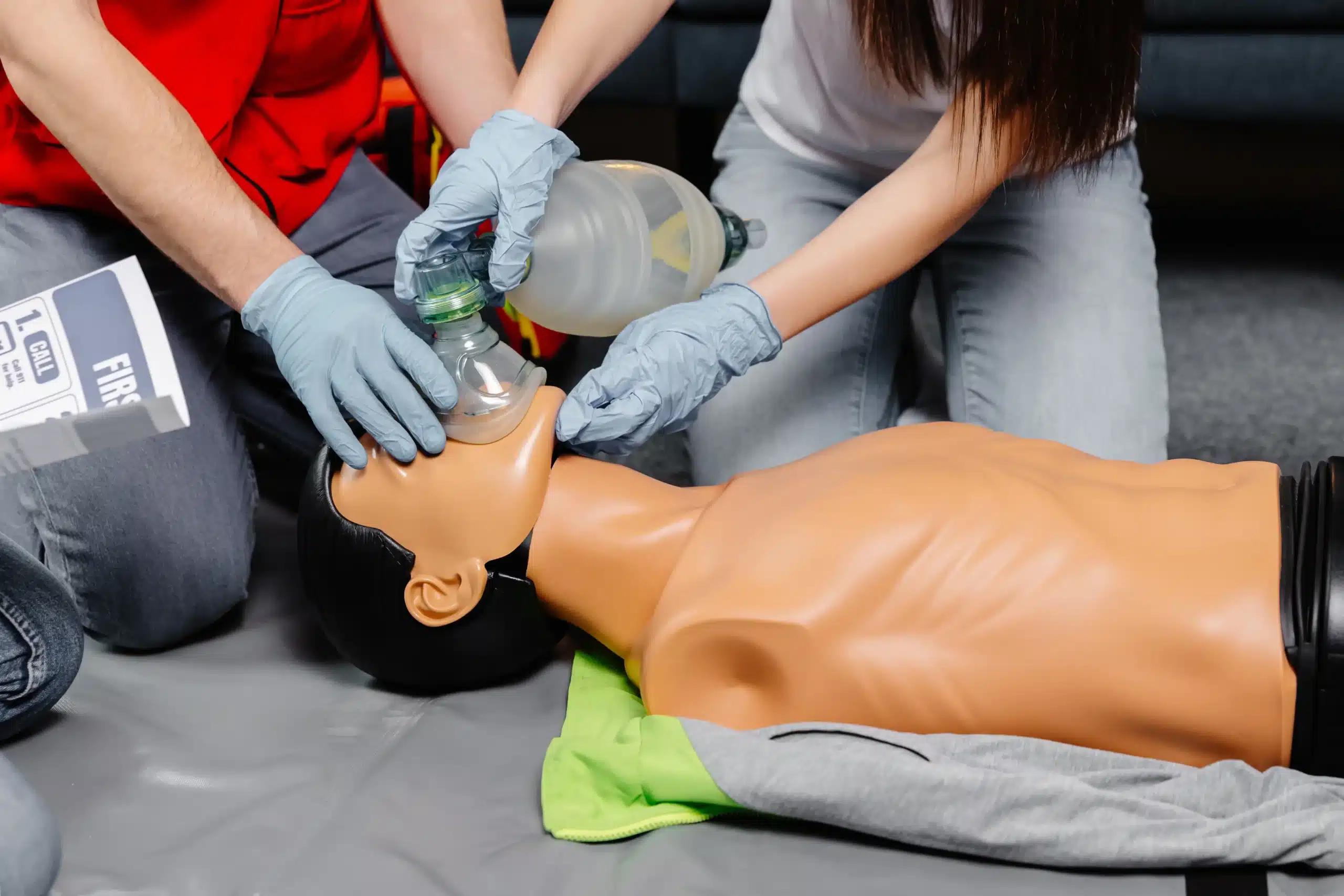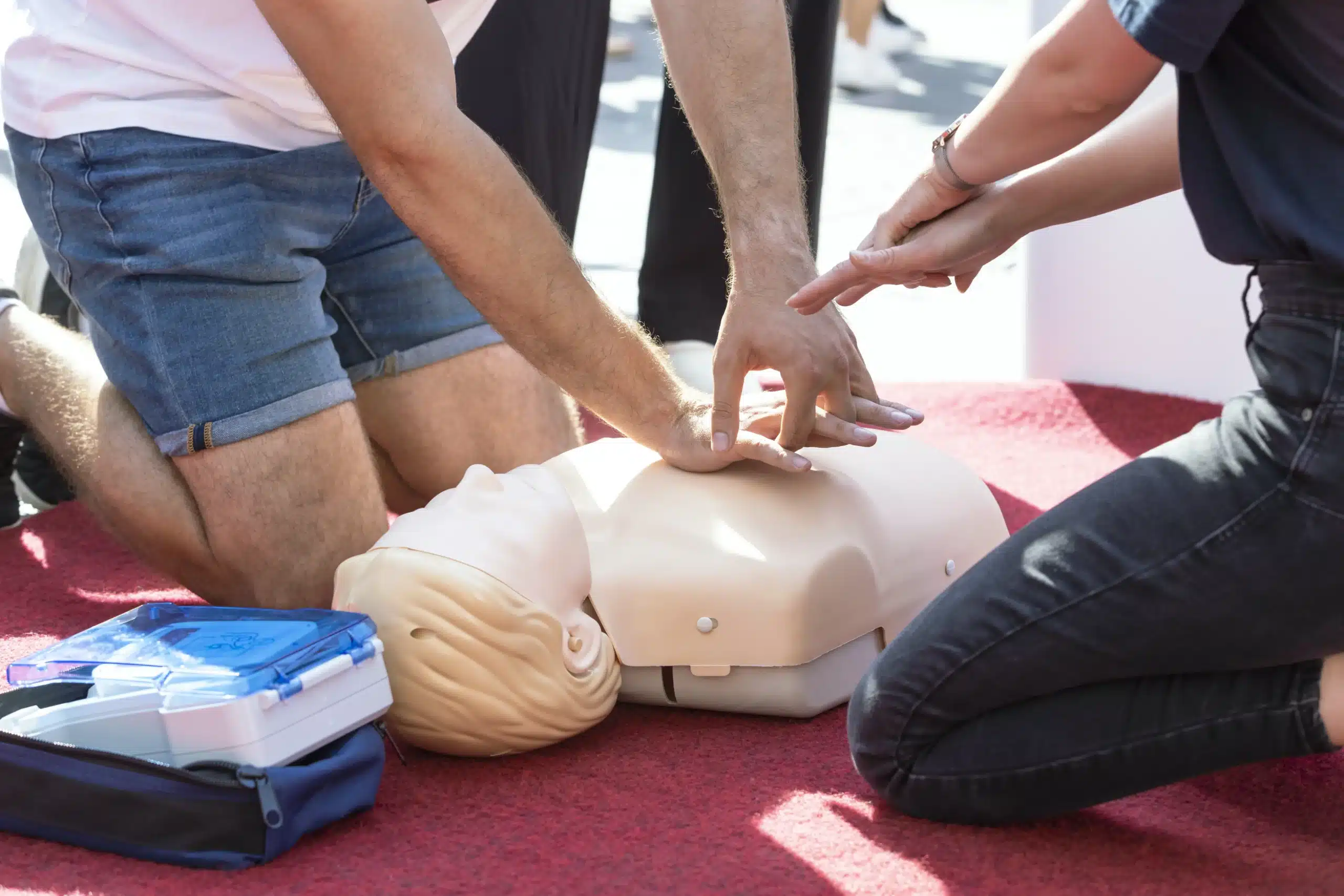Looking for BLS courses in San Jose? You’re in the right place. Whether you’re a healthcare professional, a student, or someone who wants to be prepared for anything, BLS training is a powerful tool. From CPR and AED use to airway management, these courses give you the skills and confidence to respond effectively in emergencies. This comprehensive guide covers everything from course content and costs to finding the perfect training provider in San Jose. We’ll also explore different learning formats and offer tips for overcoming common training challenges.
Key Takeaways
- BLS is a foundational life-saving skillset: From healthcare professionals to everyday people, BLS training empowers you to respond effectively in emergencies. Explore various course formats to find the best fit for your lifestyle.
- Select a reputable BLS training provider: AHA accreditation, qualified instructors, and comprehensive course content are key factors to consider. Campbell CPR Classes offers flexible scheduling and competitive pricing, including group discounts.
- Stay current with your BLS certification: Regularly refresh your skills and knowledge to maintain your certification and ensure you’re always prepared for emergencies. Explore continuing education resources and renewal courses to stay up-to-date.
What are BLS Courses & Why are they Important?
BLS stands for Basic Life Support. These courses equip people with the skills to respond to cardiovascular emergencies and other life-threatening situations. From CPR and AED use to airway management, BLS training provides the knowledge and confidence to act quickly and effectively.
Life-Saving Skills for Healthcare Professionals
For healthcare providers, BLS certification is non-negotiable. Think of it as your toolkit for handling respiratory distress, cardiac arrest, and obstructed airways. BLS training covers essential skills like CPR, giving you the confidence to step up and potentially save a life. It’s about more than just checking a box; it’s about improving patient outcomes and ensuring you’re prepared for any situation. These skills are crucial both in hospitals and prehospital settings. For those working in Santa Clara County, obtaining your BLS Certification in Santa Clara is essential for providing high-quality patient care.
Foundation for Advanced Medical Training
BLS isn’t just about immediate life-saving actions; it’s the bedrock of advanced medical training. These fundamental skills are essential for anyone entering the medical field. BLS certification provides a strong foundation for future learning, paving the way for more specialized training like ACLS and PALS. It’s the starting point for a career dedicated to helping others, emphasizing the core value of preserving life. For medical students, mastering BLS is crucial for future success. It’s about understanding the core principles of life support and building the confidence to apply them effectively.
Find Top BLS Course Providers in San Jose
Finding the right BLS course provider is crucial for a positive and effective learning experience. Here are a few reputable options in the San Jose area:
Campbell CPR Classes
Located in nearby Campbell, Campbell CPR Classes offers American Heart Association (AHA) BLS courses with a focus on community safety. Their training includes AED instruction, preparing you to handle cardiac emergencies and provide immediate assistance. They are known for their excellent customer service and competitive pricing, serving Campbell, San Jose, and Cupertino. Check out their low price guarantee for more information.
American Red Cross
The American Red Cross provides BLS certification and renewal courses in San Jose. Their classes use real-life scenarios to teach CPR, AED use, and how to relieve airway obstruction for adults, children, and infants.
CPR Training Center
The CPR Training Center in San Jose offers a range of AHA-certified courses, including BLS, ACLS, PALS, CPR, and First Aid. This makes them a convenient option if you want to combine your BLS training with other certifications.
Other Local Providers
You can find several other providers offering AHA-certified BLS training in and around San Jose. For example, Safety Training Seminars offers BLS, ACLS, PALS, and CPR courses in Campbell. A little research will help you find a provider that best suits your schedule and learning preferences. Consider contacting providers directly using their contact information to discuss your specific needs.
What Do BLS Courses Cost?
Understanding the cost of BLS courses is a practical first step. Let’s break down the typical price range and what can influence it.
Average San Jose Prices
In San Jose, BLS course costs can vary. You’ll find some providers offering combined CPR/AED/First Aid and BLS Healthcare Provider certifications for around $25 and $35, respectively. However, these prices aren’t fixed and can change. It’s always a good idea to check with specific training centers for their most up-to-date pricing. For local options, check out Campbell CPR Classes for their latest course fees.
Factors Affecting Course Costs
Several things can affect how much a BLS course costs. One key factor is the ongoing nature of BLS certification. Healthcare providers, even those with constant patient contact, need to refresh their CPR skills and first-aid knowledge regularly. This continuous training requirement contributes to course pricing. Also, the type of course—whether it’s BLS for Healthcare Providers or a more general CPR/First Aid course—can also play a role in the overall cost.
Campbell CPR Classes’ Low Price Guarantee
At Campbell CPR Classes, we’re committed to providing high-quality training at the most affordable rates in Santa Clara County. Our Low Price Guarantee ensures you receive excellent value. We also offer group discounts to make training more accessible. If you’re looking for convenient and cost-effective BLS training in Campbell, San Jose, or Cupertino, contact us to learn more.
Explore BLS Course Formats & Durations
Finding the right BLS course often comes down to choosing the format that best fits your schedule and learning style. Let’s break down the most common options: in-person, online, and blended learning.
In-Person Classes
In-person BLS classes offer a hands-on learning experience, guided by an instructor. These courses typically cover essential skills like CPR, using an AED, and relieving airway obstructions in adults, children, and infants. You’ll practice techniques on mannequins and participate in realistic scenarios, building confidence and competence. In-person training usually takes around four to five hours. This format allows for immediate feedback from instructors and gives you the chance to ask questions in real-time.
Online Courses
Online BLS courses offer flexibility for those with busy schedules or limited access to in-person training. You can complete the coursework at your own pace, often through interactive modules, videos, and quizzes. However, it’s important to know that online-only courses might not meet all workplace requirements. Many employers require a hands-on skills assessment, which isn’t part of a purely online course. The American Heart Association’s RQI program is one example of an online option, particularly popular among healthcare professionals.
Blended Learning
Blended learning combines online convenience with in-person practice. This format typically involves completing an online portion first, followed by a shorter in-person session for a skills evaluation and hands-on practice. The Red Cross offers this type of blended learning, which includes online modules (HeartCode BLS) and a one-hour hands-on session. This approach can be a highly efficient way to earn your BLS certification, especially if you’re short on time but still want the benefits of hands-on training.
What Happens in a BLS Course?
A BLS course equips you with the skills to respond to life-threatening emergencies. It’s a crucial certification for healthcare providers and anyone in a position to provide immediate care. Let’s break down what you can expect during your BLS training.
Core Skills and Knowledge
BLS, or Basic Life Support, focuses on the critical skills needed to assist someone experiencing cardiac arrest, respiratory distress, or an obstructed airway. You’ll learn how to perform high-quality CPR for adults, children, and infants, including chest compressions and rescue breaths. The course also covers essential skills like using an automated external defibrillator (AED) and relieving choking. Understanding the chain of survival and the importance of early intervention is a key component. These core skills are vital for healthcare professionals working in both in-hospital and out-of-hospital settings. You can find more information on the importance of BLS training for healthcare providers.
Hands-on Practice
BLS courses aren’t just about lectures and textbooks. A significant portion of your training involves hands-on practice. You’ll work with mannequins to simulate real-life scenarios, allowing you to develop muscle memory and confidence in performing CPR and other life-saving techniques. This practical experience is essential for mastering the skills needed to respond effectively in an emergency. Campbell CPR Classes incorporates AED training, ensuring you’re prepared to use this device.
Certification Process and Validity
Once you’ve completed the course requirements, including written and practical assessments, you’ll receive an American Heart Association (AHA) BLS Provider Course Completion Card. This certification is valid for two years. Remember to renew your certification before it expires to maintain your BLS skills and credentials. You can learn more about our CPR classes in Campbell.
Choose the Right BLS Course
Picking the right BLS course depends on your specific needs and goals. Whether you’re a healthcare professional, a teacher, or a parent, understanding the different options available will help you make an informed decision. At Campbell CPR Classes, we offer a variety of courses to meet diverse requirements, ensuring you receive the appropriate training. Check out our Low Price Guarantee to see how we offer the best value in Santa Clara County.
Healthcare Professional Requirements
For healthcare providers, BLS certification is essential. It equips you with the skills to respond to life-threatening emergencies, including CPR, using an AED, and airway management. These skills are crucial for improving patient outcomes and maintaining a safe healthcare environment. A BLS certification demonstrates your commitment to providing high-quality care and increases your confidence in critical situations. Our BLS course covers all the required elements for healthcare professionals, following the latest American Heart Association guidelines.
General Public Options
Even if you’re not in the healthcare field, learning BLS can be incredibly valuable. Our BLS courses for the general public teach the same life-saving techniques used by professionals, adapted for anyone to learn and apply. You’ll gain the skills to perform CPR on adults, children, and infants, use an AED, and assist someone who is choking. These skills can make a real difference in an emergency, giving you the confidence to act quickly and potentially save a life. Consider our group discounts if you’re interested in learning with friends or family. Contact us today to learn more about our upcoming courses.
Specialized Courses (e.g., Pediatric BLS)
Beyond the core BLS curriculum, we also offer specialized courses to meet specific needs. For those working with children, such as childcare providers, teachers, or parents, a Pediatric BLS course provides focused training on infant and child CPR and other relevant skills. These specialized courses delve deeper into the nuances of pediatric emergencies, giving you the confidence to respond effectively in situations involving young children. We also offer RQI classes for healthcare professionals who need to refresh their resuscitation skills.
Get BLS Group Discounts & Special Rates
Benefits of Group Training
CPR and first-aid training gives people life-saving skills they need to handle emergencies. These skills empower people to confidently give immediate assistance, potentially lessening injuries or even saving lives. Group BLS training offers unique advantages, creating a collaborative learning environment where participants practice together, share experiences, and build camaraderie. This approach improves learning and helps people retain skills better. For organizations, group training offers a cost-effective way to ensure their staff receives adequate BLS training, creating a safer and more prepared workplace. Contact Campbell CPR Classes to discuss group discounts for your team. They offer comprehensive BLS courses designed for various professional groups.
Available Discounts
Many training centers understand how important it is to make BLS training accessible and affordable. You can often find competitive rates for BLS certification, especially for groups. Campbell CPR Classes is committed to offering the lowest prices in Santa Clara County, backed by their Low Price Guarantee. They also offer discounts for group bookings, making them a budget-friendly choice for organizations training multiple employees. Contact them to learn about available discounts and special rates for your group. They offer various courses, including the popular RQI program for medical professionals seeking BLS certification.
Select a BLS Provider: Key Considerations
Choosing the right BLS provider is just as important as the course itself. Here’s what to look for:
Accreditation and Instructor Qualifications
A reputable provider’s accreditation should come from a recognized body like the American Heart Association (AHA). This ensures the course meets established standards. Instructors should be certified and have substantial experience teaching BLS courses. Campbell CPR Classes is a woman-owned AHA Training Center, guaranteeing high-quality instruction from qualified professionals.
Course Content and Materials
The course content should be comprehensive. Look for classes covering essential topics such as CPR techniques, AED (Automated External Defibrillator) use, and responding to cardiac emergencies. Integrating AED training into the BLS course better prepares participants to handle real-world situations.
Scheduling Options
A provider offering flexible scheduling makes training more accessible. Campbell CPR Classes offers a variety of course times seven days a week, accommodating various schedules and minimizing disruptions to your work or personal life. This flexibility is key to fitting training into a busy schedule.
Overcome BLS Training Challenges
Let’s be honest, adding another training to your schedule can feel overwhelming. But with the right approach, BLS training can be manageable and even enjoyable. This section offers practical tips to overcome common challenges.
Time Management Tips
Juggling work, family, and other commitments makes finding time for BLS training tricky. Many Santa Clara providers offer BLS certification courses seven days a week, making it easier to fit training into your busy schedule. Look for a training center with flexible scheduling, including weekend and evening classes. Campbell CPR Classes, for example, understands these scheduling challenges and aims to accommodate busy professionals. Consider breaking down your study time into smaller, more digestible chunks. Even short, focused study sessions can be surprisingly effective.
Skill Retention Strategies
One of the biggest hurdles in BLS training is retaining all the information and skills. BLS equips first responders with the skills to handle obstructed airways, respiratory distress, and cardiac arrest. This includes CPR and other essential cardiovascular life support skills applicable in various settings (source). Hands-on practice is key. Actively participating in scenarios and simulations helps solidify these skills and builds muscle memory. Regularly reviewing the material after your course, even briefly, can significantly improve long-term retention. Consider supplemental resources like refresher courses or online practice modules.
Address Psychological Barriers
It’s completely normal to feel some anxiety, especially if you’re new to healthcare. Many healthcare providers, particularly those in hospitals, experience emotional effects after caring for cardiac arrest victims (source). Remember, BLS training equips you to handle these situations confidently. Focus on the positive impact you can have. Talk to experienced healthcare professionals or instructors about their experiences. Sharing concerns and hearing how others have overcome similar challenges can be incredibly helpful. A supportive learning environment, like the one at Campbell CPR Classes, can also make a big difference. They prioritize excellent customer service and strive to create a comfortable atmosphere for all students. Don’t hesitate to reach out to your instructor or classmates for support—you’re not in this alone.
Maintain Your BLS Certification
As a healthcare provider, staying current with your Basic Life Support (BLS) skills is crucial for providing the best possible care. Knowing what to expect and how to prepare for recertification makes the process smoother and ensures you’re always ready to respond to emergencies. Let’s break down the key aspects of maintaining your BLS certification.
Renewal Requirements
BLS certifications are typically valid for two years. This timeframe ensures that healthcare professionals regularly refresh their knowledge and skills, keeping up with the latest advancements in emergency cardiovascular care. Before your certification expires, you’ll need to complete a renewal course. This is a standard requirement to maintain your active BLS provider status. Keep track of your certification expiration date and plan to enroll in a renewal course well in advance. This proactive approach will prevent any lapse in your certification and maintain your preparedness for emergency situations.
Continuing Education
Even if your certification hasn’t expired yet, taking advantage of continuing education opportunities can be incredibly valuable. These opportunities allow you to reinforce your skills, stay familiar with updated guidelines, and gain confidence in your abilities. Regularly practicing and reviewing BLS techniques will help you respond more effectively in real-world emergencies. The Red Cross offers recertification courses for those whose certification is about to expire or has already expired, providing flexibility for busy professionals. Consider incorporating regular practice sessions into your routine to keep your skills sharp.
Resources for Skill Development
Beyond formal renewal courses, several resources are available to help you maintain and improve your BLS skills. The Red Cross emphasizes practical, scenario-based learning to improve skills and critical thinking, which is essential for effective emergency response. Hands-on practice and simulated scenarios allow you to apply your knowledge in a realistic environment, building confidence and competence. For a flexible learning experience, consider the Simulation Learning option. This self-paced format allows you to learn and practice at your own speed, fitting the training into your busy schedule. Staying proactive with your BLS skills ensures you’re always prepared to provide high-quality care.
Related Articles
- BLS Certification in Cupertino: Your Complete Guide – Campbell CPR Classes
- Your Guide to BLS Classes in San Jose – Campbell CPR Classes
- BLS Courses in Campbell: The Complete Guide – Campbell CPR Classes
- ACLS Renewal Campbell: Your Complete Guide – Campbell CPR Classes
- CPR Certification in San Jose: Your Complete Guide – Campbell CPR Classes
Frequently Asked Questions
Why is BLS certification important?
BLS certification gives you the skills to respond to medical emergencies like cardiac arrest and respiratory distress. It’s essential for healthcare providers and beneficial for anyone who wants to be prepared for such situations. Having these skills can significantly improve the outcome for someone needing immediate assistance.
How much does a BLS course typically cost in San Jose?
BLS course costs in San Jose can vary, but generally fall between $70 and $90. Factors like the course format (in-person, blended, or online) and any included materials can influence the final price. It’s always best to check directly with the training center for their most up-to-date pricing. Campbell CPR Classes offers a Low Price Guarantee, ensuring you get the best value in Santa Clara County.
What’s the difference between in-person and online BLS courses?
In-person courses provide hands-on training with an instructor, allowing for immediate feedback and practice on mannequins. Online courses offer more flexibility, letting you learn at your own pace. However, they often require an in-person skills assessment to complete the certification. Blended learning combines the convenience of online learning with the benefits of in-person skills practice.
How long does a BLS certification last, and how do I renew it?
BLS certification is typically valid for two years. To renew, you’ll need to complete a recertification course before your current certification expires. This ensures your skills and knowledge are up-to-date.
What if I have a busy schedule and struggle to find time for a BLS course?
Many training centers offer flexible scheduling options, including weekend and evening classes, to accommodate busy schedules. Look for providers like Campbell CPR Classes that offer various course times seven days a week. Breaking down your study time into smaller, manageable sessions can also make the process less overwhelming.


